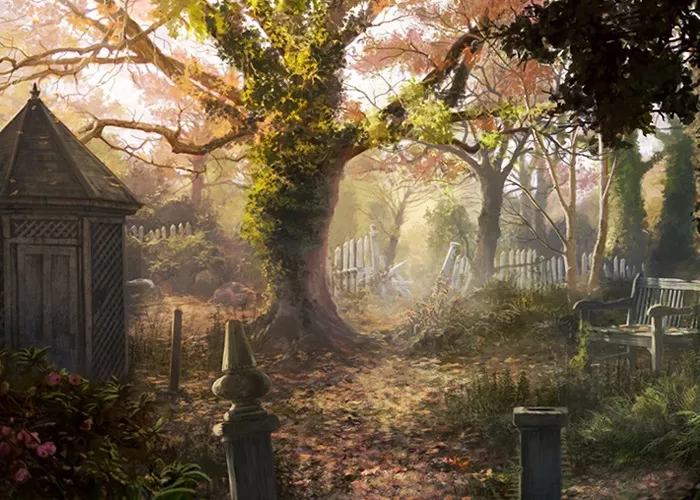Welcome to Poem of the Day – The Forgotten Garden by Yoshinobu Morikawa.
Yoshinobu Morikawa’s poem The Forgotten Garden evokes a profound sense of loss and rediscovery, using the motif of a garden to explore themes of memory, abandonment, and the passage of time. This essay will delve into the rich layers of meaning in the poem, analyzing its imagery, structure, and emotional depth to uncover its thematic significance.
The Forgotten Garden Poem Explanation
The Forgotten Garden is a reflective work that portrays a garden left untended and forgotten by its caretaker. Morikawa presents this garden not merely as a physical space but as a metaphor for neglected memories, forsaken relationships, and the forgotten aspects of life. The poem invites the reader to imagine a garden that once thrived, now overrun with weeds and the scars of time. This garden, which once held beauty and life, has slipped into the recesses of the mind, like forgotten dreams or lost moments.
Imagery and Symbolism
The central image of the garden is rich in symbolism. Gardens are often associated with growth, life, and care. In the poem, however, the garden is a place of decay and neglect, symbolizing the passage of time and the inevitability of change. Morikawa paints a vivid picture of this abandoned space, filled with overgrown vines and untended flowers. Through this image, he speaks to the human condition: how, over time, we neglect the things that once mattered most—whether out of forgetfulness, apathy, or the demands of life.
The “forgotten” aspect of the garden amplifies the sense of abandonment. It suggests that the garden was once cared for, loved, and cherished, but over time, it was left behind. This mirrors the ways in which people often neglect their inner worlds, memories, or relationships. The garden becomes a place not just of physical decay, but also of emotional and mental abandonment.
Moreover, the garden represents memory itself—memories that fade, are buried, or are purposefully pushed aside. As the garden is forgotten, so too are the moments and emotions that once filled it. However, Morikawa also hints at the possibility of rediscovery. The garden, while overrun with weeds, is still a place of potential. This duality—decay alongside the potential for growth—serves as a powerful metaphor for the human experience. Even in the midst of abandonment, there is always the possibility of renewal.
Structure and Language
The structure of the poem complements its themes of neglect and rediscovery. Morikawa employs a free verse format, with no rigid rhyme or meter. This lack of formal constraint reflects the disorder and abandonment of the garden. It also mirrors the fragmented nature of memory and the scattered thoughts that often arise when reflecting on the past. The flow of the poem seems to meander, just as a neglected garden would, filled with pauses and unfinished thoughts that hint at what has been lost but cannot fully be recovered.
Morikawa’s language is both evocative and intimate. He uses descriptive phrases to capture the essence of the garden’s decline, allowing the reader to visualize the space in their mind. His choice of words—such as “overrun,” “wild,” and “untended”—conveys a sense of wildness and chaos that stands in stark contrast to the garden’s former state. The poet does not simply describe a space; he invites the reader to feel the emotional weight of its loss.
The language is not just descriptive; it also calls for reflection. Through subtle shifts in tone, the poem moves from melancholy to a more hopeful note, suggesting that despite the garden’s disrepair, it still holds a secret potential for restoration. The use of contrast between past and present, order and chaos, provides a rich emotional landscape for readers to explore.
Themes of Memory and Time
At its core, The Forgotten Garden is a meditation on memory and the passage of time. The garden symbolizes memories that are often buried or overlooked in the busyness of life. Morikawa is aware of the impermanence of all things—whether it be a garden, a relationship, or a personal experience. The neglect of the garden can be seen as a metaphor for how people often forget the beauty and significance of the things that once mattered to them, allowing time and circumstance to wash them away.
However, the poem also offers a glimmer of hope. The garden, despite its neglect, still contains the possibility for regrowth. The imagery of untended flowers and weeds hints at the persistence of life, even when it seems to have faded. This theme of cyclical renewal—of rediscovery and resurrection—is central to the poem. In this sense, The Forgotten Garden reflects not just the sorrow of lost memories but also the resilience of the human spirit. Just as a garden can be restored with care and attention, so too can forgotten parts of ourselves be revived with reflection and intention.
Conclusion
The Forgotten Garden by Yoshinobu Morikawa is a poignant exploration of the passage of time, the neglect of memories, and the possibility of renewal. Through the symbolic use of a neglected garden, Morikawa invites the reader to reflect on the things they have abandoned, whether consciously or unconsciously, and to consider the potential for rediscovery. The poem’s evocative imagery, free-flowing structure, and thoughtful exploration of memory and time make it a powerful and moving work, offering both a meditation on loss and a hopeful reminder of the possibility of rebirth.

